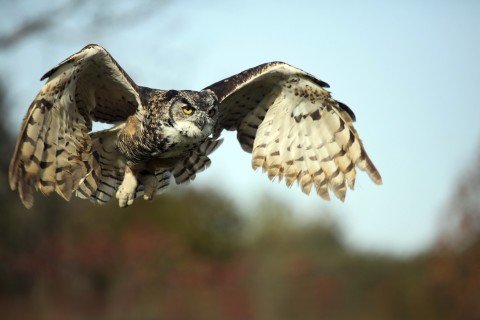
Tenses in Afrikaans are not as hard to master as those of many older languages. In fact, there’s no need to feel tense about tenses!

Dis nie nodig om gespanne te voel oor Afrikaanse tye nie! / “There’s no need to feel tense about Afrikaans tenses!”
How Do We Indicate Afrikaans Tenses?
In Afrikaans, the verbs usually inflect for time, just as in English. This is called “conjugation” (werkwoord verbuiging) and it’s characterized by a change to the form of the verb—in this case, to indicate the tense. (Think “walk” vs. “walked.” Here, the verb has a suffix [-ed] to indicate that the action took place in the past.)
- → Sound complex? It isn’t, really, once you get the hang of it. Read more about Afrikaans conjugations in our blogpost All About Verb Conjugation in Afrikaans – Your Best Guide!
Some more good news: There are very few complex conjugations and rules for indicating the continuous, perfect, and perfect continuous tenses in Afrikaans! Of course, we have methods of expressing these concepts, but they’re very simple compared to those used in most older languages. In this article, we’re going to cover the basics of the simple past, present, and future tenses in Afrikaans.
Afrikaans Conjugations for Time
Conjugations for the simple past, present, and future tenses in Afrikaans tend to be less complex than those in English. Take the verb “to be,” for instance. It can be conjugated for time, but it doesn’t change for person or number as it does in English, Spanish, or French.
Look at the following examples. Can you see how the irregular English verbs change only for time in Afrikaans?
| Past | Present | Future |
| was … gewees (“was” / “were”) | is (“am” / “is” / “are”) | sal … wees (“will be”) |
| Example 1: Ons was by die see gewees. (“We were at the seaside.”) | Example 1: Ons is by die see. (“We are at the seaside.”) | Example 1: Ons sal by die see wees. (“We will be at the seaside.”) |
| Example 2: Die Afrikaanse les was baie interessant gewees. (“The Afrikaans lesson was very interesting.”) | Example 2: Die Afrikaanse les is baie interessant. (“The Afrikaans lesson is very interesting.”) | Example 2: Die Afrikaanse les sal baie interessant wees. (“The Afrikaans lesson will be very interesting.”) |

Ons was by die see gewees. / “We were at the seaside.”
 Table of Contents
Table of Contents
- What Does the Present Tense in Afrikaans Look Like?
- What Does the Past Tense in Afrikaans Look Like?
- What Does the Future Tense in Afrikaans Look Like?
- Compound Verbs (Partikelwerkwoorde) & Tenses in Afrikaans
- Can AfrikaansPod101 Help You Master Tenses in Afrikaans?
1. What Does the Present Tense in Afrikaans Look Like?
The simple present tense (eenvoudige teenwoordige tyd) in Afrikaans is used to express something happening right now. Its characteristics include…
- …the presence of selfstandige werkwoorde (“simple verbs”), such as werk (“work”), speel (“play”), and maak (“make”);
- …sometimes, a present tense koppelwerkwoord (“linking verb”), such as is (“is”) and a byvoeglike naamwoord (“adjective”);
- …appropriate adverbs and adverbial phrases of time.
The following adverbs of time (bywoorde van tyd) and adverbial phrases of time (bywoordelike bepalings van tyd) indicate the present tense in Afrikaans.
- → nou (“now”)
→ vandag (“today”)
→ op die oomblik (“at the moment”)
→ nou dadelik / onmiddelik (“right now”)
→ deesdae (“these days” / “nowadays”)
→ tans (“currently”)
Take a look at these syntactic analyses to see where the conjugations fit in.
Ek is tevrede. / “I am pleased.”
| Subject Pronoun | Linking Verb | Adjective |
| Ek | is | tevrede. |
| I | am | pleased. |
Die bloggers is gewild. / “The bloggers are popular.”
| Subject Phrase | Linking Verb | Adjective |
| Die bloggers | is | gewild. |
| The bloggers | are | popular. |
My selfoon lui nou. / Lit. “My cell phone rings now.”
| Subject Phrase | Simple Verb | Adverb of Time |
| My selfoon | lui | nou. |
| My cell phone | “(is) ring(ing)”a | now. |
Baie toeriste geniet op die oomblik die Suid Afrikaanse somerweer. / Lit. “Many tourists enjoy the South African summer weather at the moment.”
| Subject Phrase | Verb | Adv. Phrase of Time | Object Phrase |
| Baie toeriste | geniet | op die oomblik | die Suid Afrikaanse somerweer. |
| Many tourists | “(are) enjoy(ing)”a | at the moment | the South African summer weather. |
- aNote: Afrikaans doesn’t have continuous tenses!
| REVIEW: So, to recap quickly—how do we identify which tense is used in these sentences? That’s right! We know these are in the simple present tense because: |

Baie toeriste geniet op die oomblik die Suid Afrikaanse somerweer. / “Many tourists are enjoying the South African summer weather at the moment.”
Hopefully, that was easy enough. Now, onto the past tense in Afrikaans!
2. What Does the Past Tense in Afrikaans Look Like?
The simple past tense in Afrikaans (eenvoudige verlede tyd) is the most complex of the three tenses. It’s typically characterized by one or more of the following:
- Past Tense Verb Conjugation A) where a past tense koppelwerkwoord / linking verb (was) is used in tandem with the hoofwerkwoord / main verb (wees), but the latter gets the ge- prefix (gewees). These terms don’t correlate exactly, but the nearest English conjugation would be: “I was tired.” / Ek was moeg gewees. It’s also acceptable to simply say: Ek was moeg.
- Past Tense Verb Conjugation B) where a hulpwerkwoord van tyd / Lit. auxiliary verb of time (het) is paired with a hoofwerkwoord / main verb that also gets the ge- prefix. An English approximate would be the simple past tense conjugation, e.g. “The water boiled.” / Die water het gekook.
- The use of appropriate adverbs and adverbial phrases of time.

Ek was tevrede gewees. / “I was pleased.”
The following adverbs and adverbial phrases of time usually indicate the past tense.
- → toe (“then”)
→ gister (“yesterday”)
→ voorheen (“previously”)
→ die vorige (“the previous”)
→ laasjaar / laasweek / laas Kersfees (“last year” / “last week” / “last Christmas”)
→ verlede jaar / verlede week / verlede Kersfees (Also “last year” / “last week” / “last Christmas”)
→ in die verlede (“in the past”)
Let’s see where the Afrikaans past tense conjugations fit into these sentences:
Ek was tevrede gewees. / “I was pleased.”
| Subject Pronoun | Linking Verb | Adjective | Prefix ge- + Main Verb |
| Ek | was | tevrede | gewees. |
| I | was | pleased. | – |
Note: This can be translated as “was” OR “have been.”
Die bloggers was gewild. / “The bloggers were popular.”
| Subject Phrase | Linking Verb | Adjective |
| Die bloggers | was | gewild. |
| The bloggers | were | popular. |
Note: Vernacularly, gewees is often omitted from the was … gewees conjugation, as shown in this sentence. The omission won’t change the tense or the meaning of the sentence.
My selfoon het toe gelui. / “My cell phone then rang.”
| Subject Phrase | Auxiliary Verb | Adverb of Time | Prefix ge- + Main Verb |
| My selfoon | het | toe | gelui. |
| My cell phone | – | then | rang. |
Baie toeriste het laasjaar die Suid Afrikaanse somerweer geniet. / Lit. “Many tourists enjoyed the South African summer weather last year.”
| Subject Phrase | Auxiliary Verb | Adverb of Time | Object Phrase | Irregular Past Tense Verb |
| Baie toeriste | het | laasjaar | die Suid Afrikaanse somerweer | geniet. |
| Many tourists | have | last year | the South African summer weather | enjoyed. |
Note: Keep in mind that geniet is an irregular past tense verb, meaning that there is no ge-morpheme conjugation. Read on for more about these irregular verbs and their conjugations for the past tense.
| REVIEW: So, to recap quickly—how do we identify the tense in these sentences? That’s right! We know these are written in the simple past tense because:
|
2So, what is the exception? The exception is irregular main verbs.

My selfoon het gelui. / “My cell phone rang.”
B.1 Irregular Main Verbs (onreëlmatige hoofwerkwoorde)
Many (if not most) simple past tense sentences are conjugated with the Past Tense Verb Conjugation B (auxiliary verb het + ge–main verb) mentioned under the previous heading. But of course, grammar being grammar, there are several exceptions to this rule. Very simply put—some verbs do not get conjugated with het + ge-main verb, ergo the term “irregular main verbs”. Only the auxiliary verb het appears in the sentence.
While it’s not difficult to spot these irregular verbs in a sentence (just look out for het plus a main verb), it’s challenging to list them based on similar morphological characteristics. So, for the purposes of the article, I’ve listed these irregular verbs according to the cluster of letters they start with. Some of these clusters are morphemes or prefixes (a morphological unit with meaning, such as “re-” in English), and others are just clusters of letters without classification.
If this is all too complex—just memorize these irregular verbs, and remember the past tense conjugation! The asterisk * indicates transitive irregular verbs, meaning that when they appear in a sentence, you will always find a subject too. (Or, in other words—a subject is necessary in the sentence in order for it to make sense!)
| Starting with: | Irregular Main Verbs: |
| Ge- |
Ons het gesels. (“We chatted.”)
*Die kinders het eerste die leeu gewaar. (“The children were the first to notice the lion.”) |
| Be- |
Sy het betaal. (“She paid.”) |
| Ver- |
Hy het vergeet. (“He forgot.”) |
| Her-* |
Billie Eilish het sommige liedjies herhaal tydens haar konsert. (“Billie Eilish repeated some songs during her concert.”) |
| Ont-* |
Hy het skuld ontken. (“He denied his guilt.”) |
| Er-* |
Hy het skuld erken. (“He admitted his guilt.”) |
| Irregular Compound Verbs (Read on for more about regular compound or particle verbs and how they conjugate for the past tense.) | afbetaal (“paid off”) opbetaal (“paid-up”) oorbetaal (“paid over”) inbetaal (“paid in”) weergee (“relay”) Hy het die volle bedrag inbetaal. (“He has paid in the full amount.”) |
| Weer-* |
Die politikus het haarself weerspreek. (“The politician contradicted herself.”) Note: These look like particle or compound verbs, don’t they? They’re not, though, because the meaning of weer changes to “again” when it stands alone. In these irregular verbs, the prefix weer confers almost the same meaning as “against” or “contra-“. |

Hy het die volle bedrag inbetaal. / “He has paid in the full amount.”)
Wait! These are not the only exceptions, unfortunately.
B.2 Irregular Linking Verbs (onreëlmatige skakelwerkwoorde)
If you spot one of the following linking verbs (skakelwerkwoorde) in a sentence, then they conjugate the same way as the irregular main verbs under the B.1 heading (auxiliary verb het plus the linking verb without a ge- prefix). The main verb retains its base form.
Look at these examples:
bly
- Dit het bly reën. / “It kept raining.”
gaan
- Ons het gaan eet. / “We went eating.”
kom
- Die dokter het kom help. / “The doctor came to help.”
probeer
- Ek het Fortnite probeer speel. / “I tried to play Fortnite.”
Vernacularly, it’s acceptable to conjugate the following with or without the prefix ge- when they serve as linking verbs:
- → leer (“learn”)
→ aanhou (“keep on”)
→ ophou (“stop”)
→ help (“help”)
→ sien (“see”)
Some sources say this is a dialectical preference specific to certain parts of the South African Western and Northern Cape provinces, but I have encountered it across the whole country. It doesn’t matter, really, because the meaning remains unchanged.
Here’s what these linking verbs look like in sentences:
leer
Tydens die pandemie het ek (ge)leer programmeer. / “During the pandemic, I learned to program.”
aanhou
Dit het aan(ge)hou reën. / “It kept raining.”
ophou
Almal het op(ge)hou alkohol drink. / “Everyone stopped drinking alcohol.”
help
Die laaste ent van die pad het hy (ge)help dra aan die baggasie. / “(For) the last bit of the road, he helped carry the luggage.”
sien
Ons het die uil (ge)sien wegvlieg. / “We watched the owl fly away.”

Ons het die uil gesien wegvlieg. / “We watched the owl fly away.”
You probably noticed the compound verbs (deeltjiewerkwoorde)—aanhou and ophou—and the special treatment they got. More about that later.
Now buckle up for the future!
3. What Does the Future Tense in Afrikaans Look Like?
The simple Afrikaans future tense (eenvoudige toekomende tyd) can be recognized by one or more of the following:
- Future Tense Verb Conjugation A) which comprises an auxiliary or modal verb (hulpwerkwoord van modaliteit) sal / gaan, plus an unchanged main verb, similar to the English simple future: “We will walk.” / Ons sal loop.
- Future Tense Verb Conjugation B) which comprises an auxiliary or modal verb (sal / wil / kan), plus the auxiliary verb wees for the active voice and word for the passive voice. An approximate conjugation in English could be: “I will be satisfied.” / Ek sal tevrede wees. This is the active voice. To illustrate the passive voice: “That will be done.” / Dit sal gedoen word.
- Appropriate adverbs and adverbial phrases of time.
The following adverbs of time and adverbial phrases of time usually indicate the future tense.
- → dan (“then”)
→ nou / binnekort (“soon”)
→ nou-nou (Lit. “now-now,” which means almost the same as “soon-ish”)
→ more (“tomorrow”)
→ volgende week / maand / jaar (“next week / month / year”)
→ voortaans (“henceforth”)
→ van nou af (“from now on”)
→ in die toekoms (“in the future”)
→ oor ‘n uur / dag (“in an hour / day”)
Now let’s look at how this works in a few sample sentences.
Ek sal tevrede wees. / “I will be contented.”
| Subject Pronoun | Aux. / Modal Verb | Adjective | Be-Verb |
| Ek | sal | tevrede | wees. |
| I | will | contented | be. |
Die bloggers gaan gewild wees. / “The bloggers will be popular.”
| Subject Phrase | Aux. / Modal Verb | Adjective | Aux. / Be-Verb |
| Die bloggers | gaan | gewild | wees. |
| The bloggers | will | popular | be. |
My selfoon sal dan lui. / Lit. “My cell phone will then ring.”
| Subject Phrase | Aux. / Modal Verb | Adverb of Time | Base Verb |
| My selfoon | sal | dan | lui. |
| My cell phone | will | then | ring. |
Baie toeriste sal volgende jaar die Suid Afrikaanse somerweer geniet. / Lit. “Many tourists will next year enjoy the South African summer weather.”
| Subject Phrase | Aux. / Modal Verb | Adv. Phrase of Time | Object Phrase | Base Verb |
| Baie toeriste | sal | volgende jaar | die Suid Afrikaanse somerweer | geniet. |
| Many tourists | will | next year | the South African summer weather | enjoy. |
| REVIEW: So, to quickly recap—how do we identify which tense is used in these sentences? That’s right! We know they are in the simple future tense because:
|
If you’ve found our article on Afrikaans verb tenses helpful so far, also look at Your Definitive Guide to Proper Afrikaans Sentence Structure. Learning to form sentences is a great way to practice your use of tenses.
But before we wrap it up—what happens to compound verbs (samekoppelings, deeltjiewerkwoorde, or partiekelwerkwoorde) in the past, present, and future tenses in Afrikaans…?
4. Compound Verbs (Partikelwerkwoorde) & Tenses in Afrikaans
This type of verb, also called samekoppelings, partiekelwerkwoorde, or deeltjiewerkwoorde, is a combination of what we call in Afrikaans a partiekel and a main verb, and they go together like a motorcycle with its sidecar. Well, not entirely, because the first part of the compound verb (particle) usually retains meaning when used separately from the main verb. So, unlike a sidecar, the particle can stand independently. Yet, the main verb’s meaning is modified by the partiekel—just as a motorcycle’s function and character are redefined by a sidecar!
Below is a list of the most common compound verbs. In Afrikaans, the rule is that the particle and the main verb go together, even when they’re not written as one word.
D.1 Common Compound Verbs + Conjugations
| Particle Verb | Main Verb | Present Tense Conjugation | Past Tense Conjugation het + particle + -ge- verb Where the ge- appears in brackets, it means that it is sometimes omitted in the vernacular. | Future TenseConjugation sal / gaan |
| in | gee | ingee / “give in” | het ingegee / “gave in” | sal ingee / “will give in” |
| toe | gee | toegee / “concede” | het toegegee / “conceded” | gaan toegee / “will concede” |
| aan | gee | aangee / “pass on” | het aangegee / “passed on” | sal aangee / “will pass on” |
| op | gee | opgee / “give up” | het opgegee / “gave up” | gaan opgee / “will give up” |
| oor | gee | oorgee / “hand over” | het oorgegee / “handed over” | gaan oorgee / “will hand over” |
| op | hou | ophou / “cease” | het op(ge)hou / “ceased” | sal ophou / “will cease” |
| aan | hou | aanhou / “keep on” OR “persist” OR “keep” | het aan(ge)hou / “kept on” OR “persisted” OR “kept” | sal aanhou / “will persist” |
| in | hou | inhou / “keep in” | het ingehou / “kept in” | gaan inhou / “will keep in” |
| voor | hou | voorhou / “pretend” | het voorgehou / “pretended” | gaan voorhou / “will pretend” |
| in | gaan | ingaan / “go into” | het ingegaan / “went into” | sal ingaan / “will go into” |
| oor | gaan | oorgaan / “go over” OR “cross” | het oorgegaan / “went over” OR “crossed” | sal oorgaan / “will cross” |
| toe | gaan | toegaan / “close” (by itself) | het toegegaan / “closed” | sal toegaan / “will close” |
| aan | gaan | Aangaan / “persist” OR “go on” | het aangegaan / “persisted” OR “went on” | sal aangaan / “will persist” OR “will go on” |
| af | loop | afloop / “walk or run down” | het afgeloop / “walked or ran down” | sal afloop / “will walk or run down” |
| op | loop | oploop / “walk up” | het opgeloop / “walked up” | gaan oploop / “will walk up” |
| in | loop | inloop / “walk in” | het ingeloop / “walked in” | gaan inloop / “will walk in” |
| aan | keer | aankeer / “arrest” OR “round up” | het aangekeer / “arrested” OR “rounded up” | sal aankeer / “will arrest” OR “will round up” |
| af | keur | afkeur / “disapprove” | het afgekeur / “disapproved” | sal afkeur / “will disapprove” |
| af | breek | afbreek / “break down” | het afgebreek / “broke down” | gaan afbreek / “will break down” |
Did you like learning from this article? Then also look at The Best Afrikaans Verbs List at Your Fingertips and Your Easy Guide to Understanding Afrikaans Grammar.
5. Can AfrikaansPod101 Help You Master Tenses in Afrikaans?
I’d say yes! There are plenty of reasons why enrolling immediately is a good idea. For example, read about the benefits of a Premium PLUS membership, which is very reasonably priced and can fasttrack your learning considerably.
Skint month? No problem. Start with the lower-priced Basic option. You can always upgrade later.
You’ll also gain access to the following:
- Free lessons on iTunes
- Free audiobooks
- Excellent free apps
- A free Word of the Day
- A free Online Afrikaans Dictionary
Great value! Sign up today.
About the author: Christa Davel is an experienced bilingual (Afrikaans and English) freelance writer and journalist, and is currently based in Cape Town, South Africa.










